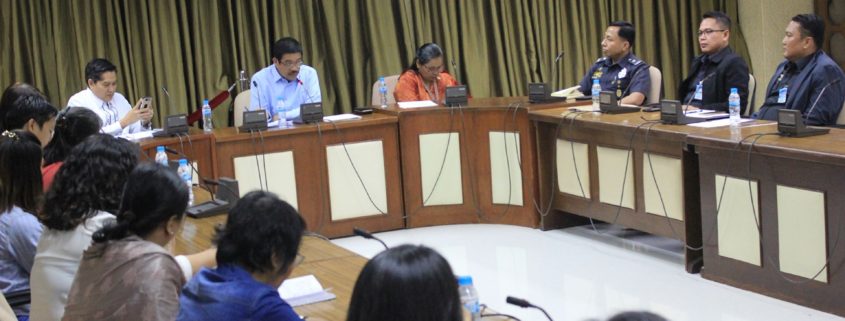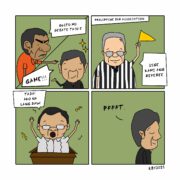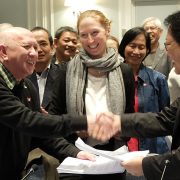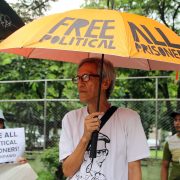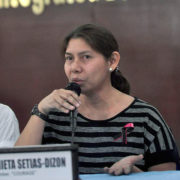Families decry move of political prisoners to local jails
by Joseph Cuevas
Families and supporters of political prisoners held a dialogue with Bureau of Jail Management and Penology (BJMP) National Headquarters officials on the detainees’ forcible transfer from Camp Bagong Diwa in Bicutan to local jails, mostly outside Metro Manila, December 4.
According to Kapatid, the organization of families and friends of political prisoners, the transfer of political prisoners is part of a bigger scheme “to further restrict the movement and access to much needed medical attention, legal services, visits and support from relatives and friends.”
The group added the planned transfer all the more violates the detainees’ rights as political prisoners, “whose arrest and detention are unjust from the very beginning.”
Kapatid members were alarmed about the “dispersal” of political prisoners from the Metro Manila District Jail Annex 4 after consecutive court motions were filed to move political prisoners to local jails.
They said inmates suffer from severe congestion and worse jail conditions in the local jails where 11 political prisoners are set to be transferred.
The dialogue, held during the 14th International Day of Solidarity for Political Prisoners and Prisoners of War last December 3, was initiated by the office of Bayan Muna Rep. and deputy minority floor leader Carlos Isagani Zarate at the House of Representatives in Quezon City.
Zarate along with Rep. Ferdinand Gaite and Rep. Eufemia Cullamat filed House Resolution 566 in the lower house to investigate the situation of political prisoners.
Government prosecutors have asked to transfer National Democratic Front of the Philippines peace consultants Frank Fernandez, Adelberto Silva and their companion, called the “Sta. Cruz 5”, to the Laguna Provincial Jail; Rey Casambre to Bacoor Jail; and government union organizer Oliver Rosales to Malolos City Jail.
Farmer Maximo Reduta from Southern Quezon was transferred to Gumaca District Jail last week.
Counterinsurgency move
BJMP Chief for Operations Jail Chief Supt. Dennis Rocamora said that the transfer of political prisoners is part of decongestion campaign of jails across the country and several concern of security escort during court hearings.
He said they received complaints from different courts about the delayed or postponement of PDLs (Persons Deprived of Liberty) trials because of distance and security measures set by the bureau.
But Rocamora also admitted that some re-commitment of political prisoners outside Metro Manila is due to the request of the Department of National Defense, invoking Executive Order No. 70.
EO 70 created the National Task Force to End Local Communist Armed Conflict (ELCAC), also known as the government’s resurrected “Whole of Nation Approach” against insurgency.
Rocamora cited the case of Fernandez and his wife Cleofe Lagtapon whom the DND requested through BJMP Chief Supt. Allan Iral for their transfer to Sta. Cruz Jail since July 25, 2019.
A copy of court order transferring Maximo Reduta was also revealed in the dialogue as requested by the Defense Secretary.
Rights group opposes transfer
Human Rights group Karapatan asserted the transfer of political prisoners in jails, particularly in the same area where common offenders or criminals, are detained will endanger their lives.
“These individuals are being persecuted already by a government that brands them as enemies of the State. It is not far-fetched, as in the cases of former Albuera, Leyte mayor Rolando Espinosa and Genesis “Tisoy” Argoncillo, who were both killed in separate incidents while under detention, that the Duterte administration is cooking up plans for assassinations of political prisoners while in detention,” Karapatan said in a statement.
Karapatan also emphasized that political prisoners were victims of trumped-up charges and arbitrary arrests.
“Many of them are in jail because operatives planted evidence in their belongings, are implicated by paid and expert witnesses, arrested by virtue of defective warrants, and were targeted because of their affiliation and vocal criticisms,” the group said.
As of November 2019, there are 629 political prisoners across the country, 382 of whom were arrested under the Duterte government, Karapatan said. #

